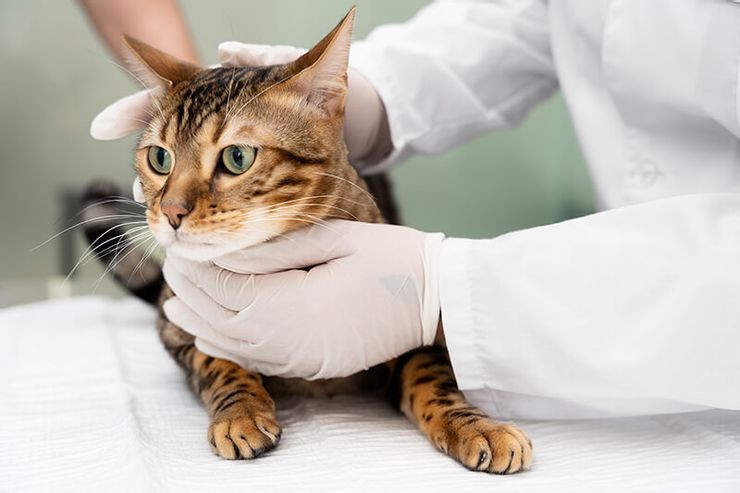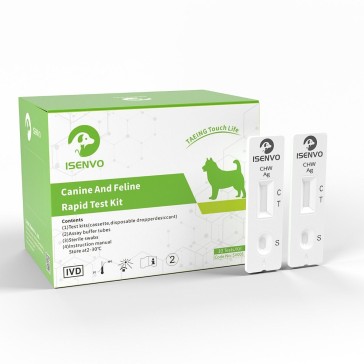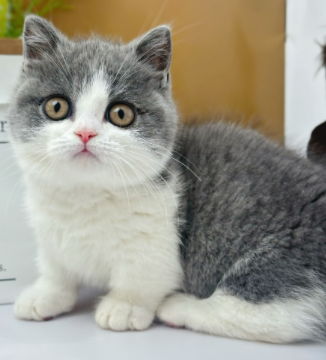The health of our feline companions is a top priority for every cat owner, and FPV (Feline Panleukopenia Virus), commonly known as "feline distemper," is a highly contagious and often fatal disease, especially for kittens and unvaccinated cats. Early detection is crucial to saving a cat’s life, and the emergence of FPV virus detection kits allows pet owners and veterinarians to diagnose the disease quickly and accurately, enabling timely treatment.
What is FPV Virus?
FPV (Feline Panleukopenia Virus) belongs to the parvovirus family and is closely related to canine parvovirus (CPV). It primarily attacks rapidly dividing cells, especially in the bone marrow, intestines, and fetal nervous system, leading to a sharp drop in white blood cell count ("panleukopenia"). This weakens the cat’s immune system and causes severe gastrointestinal symptoms.
How is FPV Transmitted?
-
Direct contact: Saliva, feces, or vomit from infected cats
-
Indirect contact: Contaminated litter boxes, food bowls, bedding, or human clothing
-
Mother-to-kitten transmission: Infected pregnant cats may experience miscarriage or give birth to kittens with neurological disorders
-
Environmental persistence: FPV can survive for months or even years in the environment and is resistant to many common disinfectants
Symptoms of FPV Infection
The incubation period for FPV is typically 2-10 days, and symptoms may include:
✅ High fever (above 40°C / 104°F)
✅ Severe vomiting and diarrhea (possibly bloody)
✅ Extreme lethargy and depression
✅ Loss of appetite and dehydration
✅ Neurological symptoms in kittens (e.g., ataxia due to cerebellar hypoplasia)
Without prompt treatment, the mortality rate can reach 50%-90%, particularly in kittens and immunocompromised cats.
Why Early Detection of FPV is Critical
FPV progresses rapidly, and early diagnosis and treatment significantly improve survival rates. Detecting the virus in its early stages can make a life-or-death difference.
Key Reasons for Early Detection:
-
Higher survival rate: Early intervention reduces organ damage.
-
Prevents outbreaks: In multi-cat households or catteries, FPV can spread quickly if not contained.
-
Reduces treatment costs: Early-stage treatment is simpler and less expensive than critical care.
-
Avoids misdiagnosis: FPV symptoms resemble other illnesses like feline coronavirus or gastroenteritis—testing ensures accurate diagnosis.
FPV Detection Kits: A Fast and Reliable Diagnostic Tool
Traditionally, FPV was diagnosed based on clinical signs and blood tests (low white blood cell count), but these methods were not always precise. Today, FPV rapid test kits (such as colloidal gold test strips and PCR tests) enable earlier and more accurate detection.
Common FPV Testing Methods:
FPV Antigen Rapid Test (Colloidal Gold Immunoassay)
Sample required: Feces or vomit
Advantages: Results in 10-15 minutes, easy to use at home or in clinics
Accuracy: High, but false negatives may occur in early-stage infections (low viral load)
How to Prevent FPV Infection
-
Vaccination: The FVRCP vaccine (FPV + feline herpesvirus + calicivirus) is a core vaccine—kittens should start vaccinations at 6-8 weeks of age.
-
Environmental disinfection: Use sodium hypochlorite (bleach solution) or veterinary-grade disinfectants to kill the virus.
-
Quarantine new cats: Isolate newly adopted cats for 1-2 weeks before introducing them to resident cats.
-
Limit exposure to strays: Unvaccinated cats should avoid outdoor contact to reduce infection risks.
What to Do If Your Cat Tests Positive for FPV?
There is no cure for FPV, so treatment focuses on supportive care:
-
Fluid therapy (to prevent dehydration)
-
Anti-emetics & anti-diarrheals (to manage symptoms)
-
Antibiotics (to prevent secondary infections)
-
Nutritional support (tube feeding if necessary)
-
Interferon or monoclonal antibodies (used in some clinics to suppress the virus)
⚠️ Critical: FPV can be fatal within days—seek veterinary care immediately if your cat tests positive!
Conclusion: Early Detection Saves Lives
FPV is a deadly but preventable disease. Vaccination, proper hygiene, and early testing can significantly reduce infection risks. FPV detection kits empower pet owners and vets to act fast, improving treatment outcomes.
If your cat shows vomiting, diarrhea, or high fever—especially if unvaccinated—use an FPV rapid test kit or visit a vet immediately. Every minute counts in saving your cat’s life!
Is your cat vaccinated against FPV? Have you ever dealt with a feline panleukopenia case? Share your experiences in the comments!










Validate your login